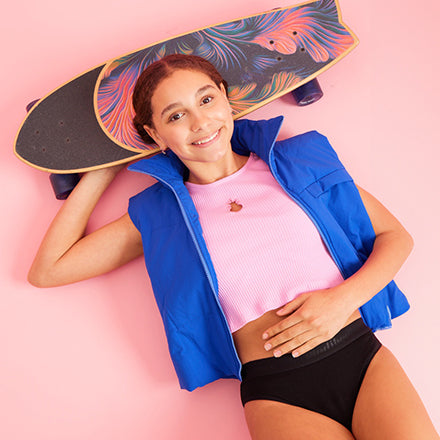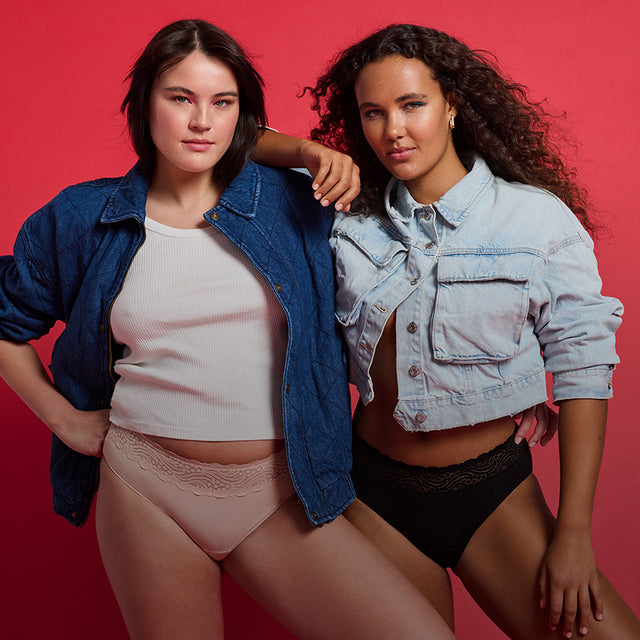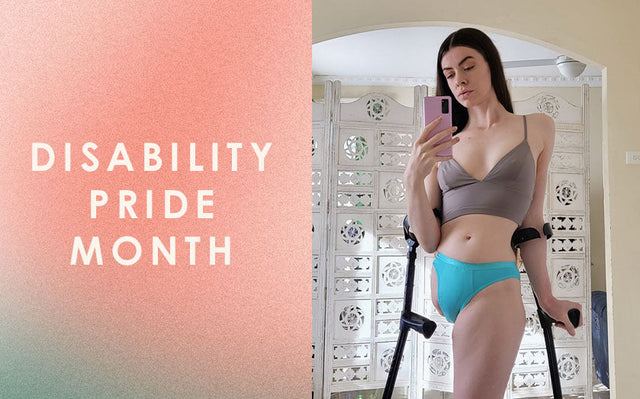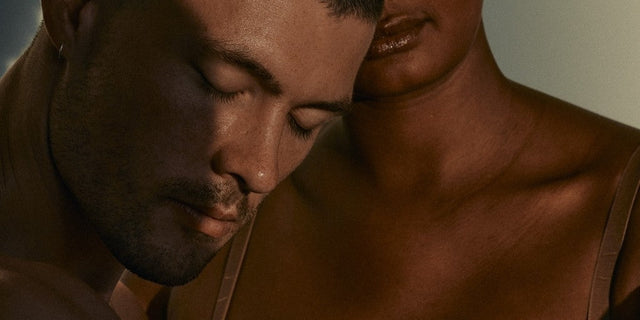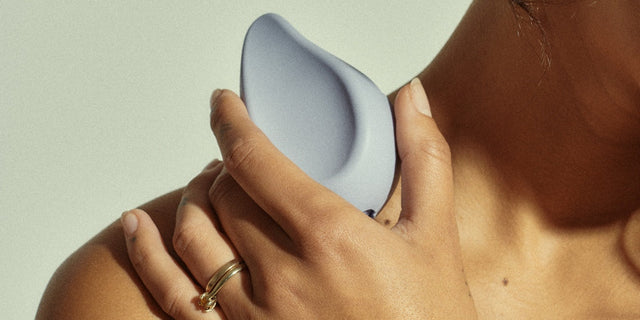During Disability Pride Month – and all year around - we want to amplify the voices of our brand ambassadors and friends with disabilities and remind everyone to be conscious of ‘ableism’ to avoid stereotyping, patronising or discriminating against people with disabilities.
But what is ‘ableism’?
It’s discrimination against those with disabilities based on the idea that non-disabled people are somehow superior. Just like sexism, or racism, ableism treats disabled people as ‘less than’ and may assume they need ‘fixing’. Examples range from building buildings without accessible ramps or elevator buttons to assuming people with disabilities want or need to be ‘fixed’ to framing disability as inspiring or tragic in popular culture, asking invasive questions about someone’s disability or using the accessible cubicle in a public restroom when you don’t need to…and so much more.
Emily Prior is a model, actor and disability advocate with cerebral palsy who’s challenging the advertising industry to be more inclusive.

Eliza is a disabled, non-binary online content creator from London whose shares content about life as a Disabled LGBTQ+ person.

Cherie Louise is a model and disability representation advocate who lost her leg to cancer and now uses social media to spread awareness through her modelling work.

What does Disability Pride Month mean to you?
Emily: I live with my disability every day so for me each day, each month is pretty much the same. However, during Disability Pride Month I feel like the community can gain some insight and understand that disability is a unique, natural and beautiful part of human diversity.
Eliza: It means community, it means rejecting ableism and being proud of who I am.
Cherie: Over the years, I’ve thought a lot about what disability pride means to me. People will say that they don’t understand how disability pride can be real or ask how someone can possibly be proud to be disabled. They say that, surely, everyone with a disability would get rid of it if they could.
I’ve heard many amputees and wheelchair users say that if they were offered the opportunity to be able to walk unaided, or get their limb/s back, that they wouldn’t take it. I am one of those people, and yet many people would call me a liar and say there is no way I wouldn’t want to have two legs again.
I understand, as they can’t imagine their life being different or how they would cope in my position. I think that comes from a deep misunderstanding of the lives of disabled people and that we are seen as objects of pity instead of value. People don’t have a lot of exposure to disabled people living joyful lives and doing things that they love due to a lack of representation film, TV and media. The stories that are commonly told are usually for shock value or to use us as objects of inspiration, instead of normalising our existence and everyday experiences.
Disability pride is seen as radical because society cannot imagine that we could possibly be happy with who we are. And while it did take me a very long time to build love for myself as an amputee, I now wouldn’t change it if I could.
I believe that I can make a bigger impact on the world as an amputee than I could if not. To be proud of my disability means to be unashamed of something that I will always have. I achieve things with my disability, not despite it. I embrace my disability, not overcome it.
How do you celebrate/take action?
Emily: I celebrate by being myself, living my best life and loving who I am. I am proud to be disabled. Sure, sometimes things are a little trickier, and that’s ok but I love who I am, and I wouldn’t be me if I wasn’t disabled. I also love Disability Pride Month because I get to find other really cool disabled people to follow on Instagram.
Eliza: I talk about Disability and raise up Disabled voices in July.
Cherie: During Disability Pride Month, many people within the disabled community take the opportunity to share things about their lives or thoughts they have around how we can create change or spread awareness. I spend a lot of time reading their work or watching videos they create around disability advocacy and share those through my own platform.
I try to put extra effort into sharing my own thoughts around disability representation and inclusion during Disability Pride Month. I also engage in partnerships to help reach a wider audience, for example this month I did a podcast interview and was also given the opportunity to share my message here through Modibodi.
A big thing that I have been focusing on this month is reaching out to brands to either offer to work with them as a model, or just letting them know that Disability Pride Month exists and recommend that they do something to acknowledge or celebrate it in their own way.

How do you think non–disabled individuals/big brands can get involved – what would you like to see?
Emily: I would love to see individuals and brands become even more inclusive. Sometimes when brands are being inclusive, they forget about disability. Obviously, I would love to see MORE disabled models in their advertising.
Eliza: I think talk about it, pay Disabled creators, hire Disabled people and learn about Disability.
Cherie: I would LOVE it if I saw more non-disabled people in my feed sharing the work of disabled creators. Unfortunately, most of the people I tend to see share the work of disabled creators are other disabled people. It would give me a lot of hope in the work that I do if I started to see more non-disabled people understanding and becoming passionate about disability advocacy by amplifying our voices.
When it comes to brands, I would love to hear about disabled employees behind the scenes. For example, a lot of brands will use a disabled model for a campaign but not have any disabled people working for them. Hearing from disabled employees that work for a brand would show that there are people internally who understand the messaging that is being put out during Disability Pride Month.
I would also like to see brands hire disabled models year-round, not just for the month. An important part of representation for me is not just “showcasing” disabled models but just casual inclusion. I really like when I spot a disabled model on my Instagram feed and they are presented like any other model. I don’t think a brand needs to make a big song and dance about why they’re using a disabled model or include a caption about diversity and so on. A lot of the time it’s not necessary and can seem like more of a “look at us” moment.

Have you seen a change with brands being more inclusive?
Emily: For so long, society and the media either reinforced negative disability stereotypes or they excluded disability altogether. This sends a message to the community that disabled people don’t exist. Or that having a disability is a tragedy or something to pity. I do exist and my life isn’t a tragedy, and I don’t want anyone’s pity.
When brands are inclusive it shows that they value everyone in their community. Brands are slowly becoming more inclusive but there is still a long way to go. Inclusion has to be meaningful and ongoing; it can’t be one-off.
Eliza: Hire Disabled people, make products for us, using Disabled people as models and support us all year round.

Cherie: When it comes to disability, I feel like I’ve seen a bigger shift in the last three years than in the previous 10. I feel that momentum is building as brands start to see that the public wants representation. Even if some brands may be jumping on board purely because they see a monetary profit or want some “good press” from it, I still feel any representation is progress.
In my personal career, I’ve noticed a change in that I am being sought out for modelling jobs that I would have had to go hunting for a couple of years ago. Things are shifting from me having to take long-shots and hoping a brand might consider booking me, to brands approaching me directly. I think a lot of this also came from managing to book my first few partnerships, and other brands seeing how well received our work was. Brands see that representation is well received and I think this is what is driving the momentum of recent years.
Any message you’d like to share with the disabled community?
Emily: Thank you to those in the disabled community who use their voices to advocate and make a difference.
Eliza: You are loved, amazing, valid and be proud to be you!
Cherie: I would say never feel pressured to share your personal experiences with others, but if you’re comfortable doing it, know that what you share is so valuable. Sharing our experiences and thoughts is helping our community reach a point of accurate representation in the media. A big turning point in my life and career came from finding a successful model on Instagram (@mamacax) with the same amputation as me. If I hadn’t found her, I don’t know if I would be at the point I am now. She had such a huge impact on my life, and I think all of my work will be worth it if I have anywhere near the same impact on another person.
Any message to share with the non-disabled community?
Emily: Please listen to disabled voices and respect our individual differences because we all have a different disability experience. Educate yourselves and learn about disability. Diversify your Instagram feed and amplify disabled voices. Please make your content and your events accessible. Finally INCLUDE disability.
Eliza: Unlearn your ableism, support us, listen to us, learn from us.
Cherie: If you’re looking to diversify your feed, I really recommend taking the time to seek out some disabled creators. There are so many incredible people in our community with varying experiences and the talent is overwhelming.
Also remember that although we may share our experiences as disabled people, it’s not our entire purpose and talking about our experiences does not equal giving permission to ask us personal/invasive questions at any time.
To learn about ableism, visit: https://www.accessliving.org/newsroom/blog/ableism-101/
You can follow Emily Prior @emilyjprior, Eliza @disabled_eliza and Cherie Louise @cherie.louise
Looking to follow some interesting Instagram content creators – here's a few to suggestions to get you started – including some recommendations from our interviewees:
@nina_tame
@sophjbutler
@crutches_and_spice (also a TikTok queen)
@JillianMercado
@luuudaw
@asheakin
@amputee_kat
@josierones
@dylanalcott
@therollingexplorer
@jessicaoutofthecloset

